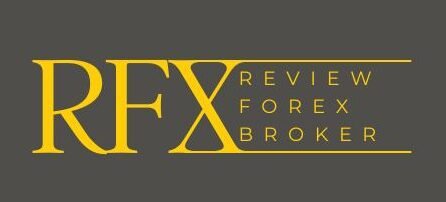Choosing the right forex broker is a key decision for any trader, as it can significantly impact your trading experience and outcomes. Among the various types of brokers available, ECN (Electronic Communication Network) and market maker brokers are two of the most common. Each has its advantages and disadvantages, making it essential to understand their differences to determine which is right for you. In this blog, we’ll compare ECN and market maker brokers to help you make an informed choice.
1. Understanding ECN Brokers
1.1. What are ECN Brokers?
ECN brokers operate using a network that connects traders directly to the interbank market. They aggregate prices from multiple liquidity providers, allowing traders to access a deeper pool of liquidity and tighter spreads. ECN brokers typically charge a small commission per trade.
1.2. Key Features of ECN Brokers
- Direct Market Access: Traders can interact directly with market participants, including banks, financial institutions, and other traders.
- Tighter Spreads: ECN brokers usually offer tighter spreads, especially during high liquidity periods.
- Transparency: Traders can see the order book and are aware of the prices at which other participants are buying and selling.
- No Conflict of Interest: Since ECN brokers do not take the opposite side of trades, there’s less potential for conflict compared to market makers.
2. Understanding Market Maker Brokers
2.1. What are Market Maker Brokers?
Market maker brokers create their own market by quoting buy and sell prices for currency pairs. They take the opposite side of their clients’ trades, which means they can profit from the spread. Market makers typically offer fixed spreads and may not charge commissions.
2.2. Key Features of Market Maker Brokers
- Fixed Spreads: Market makers often provide fixed spreads, which can be beneficial for traders who prefer predictable costs.
- Instant Execution: Trades are executed quickly, as market makers control the pricing and can fill orders without delay.
- No Commission Fees: Many market makers do not charge a commission, making it easier to calculate trading costs.
- Potential for Slippage: Since market makers control the pricing, there may be instances of slippage, particularly during volatile market conditions.
3. Comparing Key Factors
3.1. Trading Costs
- ECN Brokers: Generally have lower spreads but charge a commission per trade. This can be advantageous for high-frequency traders who prioritize tight spreads.
- Market Maker Brokers: Offer fixed spreads with no commission fees, making it easier for traders to understand their total trading costs upfront.
3.2. Execution Speed
- ECN Brokers: Provide direct access to the interbank market, leading to faster execution speeds, particularly in high liquidity environments.
- Market Maker Brokers: While execution is often quick, it may experience delays during significant market events due to the broker’s control over pricing.
3.3. Trading Environment
- ECN Brokers: Suitable for experienced traders who prefer transparency and direct market access. They often cater to scalpers and day traders looking for tight spreads.
- Market Maker Brokers: More user-friendly for beginners, as they offer simpler pricing structures and quicker execution. They may appeal to traders who prefer stability over volatility.
4. Which One is Right for You?
4.1. Consider Your Trading Style
- If You’re a Scalper or Day Trader: An ECN broker may be the better choice due to tighter spreads and faster execution speeds.
- If You’re a Long-Term Trader or Newbie: A market maker broker may offer a more straightforward experience with fixed spreads and no commission fees.
4.2. Risk Tolerance and Experience Level
- For Experienced Traders: ECN brokers can provide the tools and flexibility needed for advanced trading strategies.
- For Beginners: Market maker brokers often provide a more accessible entry point into forex trading, with user-friendly platforms and educational resources.
5. Conclusion
The choice between ECN and market maker brokers ultimately depends on your trading style, experience level, and preferences. ECN brokers offer advantages in terms of transparency, tighter spreads, and speed, making them ideal for active traders. In contrast, market maker brokers provide simplicity and fixed costs, which can benefit beginners and long-term investors.
Before making a decision, consider opening demo accounts with both types of brokers to assess their platforms, execution speeds, and overall trading conditions. By understanding your own needs and preferences, you can choose the broker that best aligns with your trading goals and enhances your forex trading experience.

